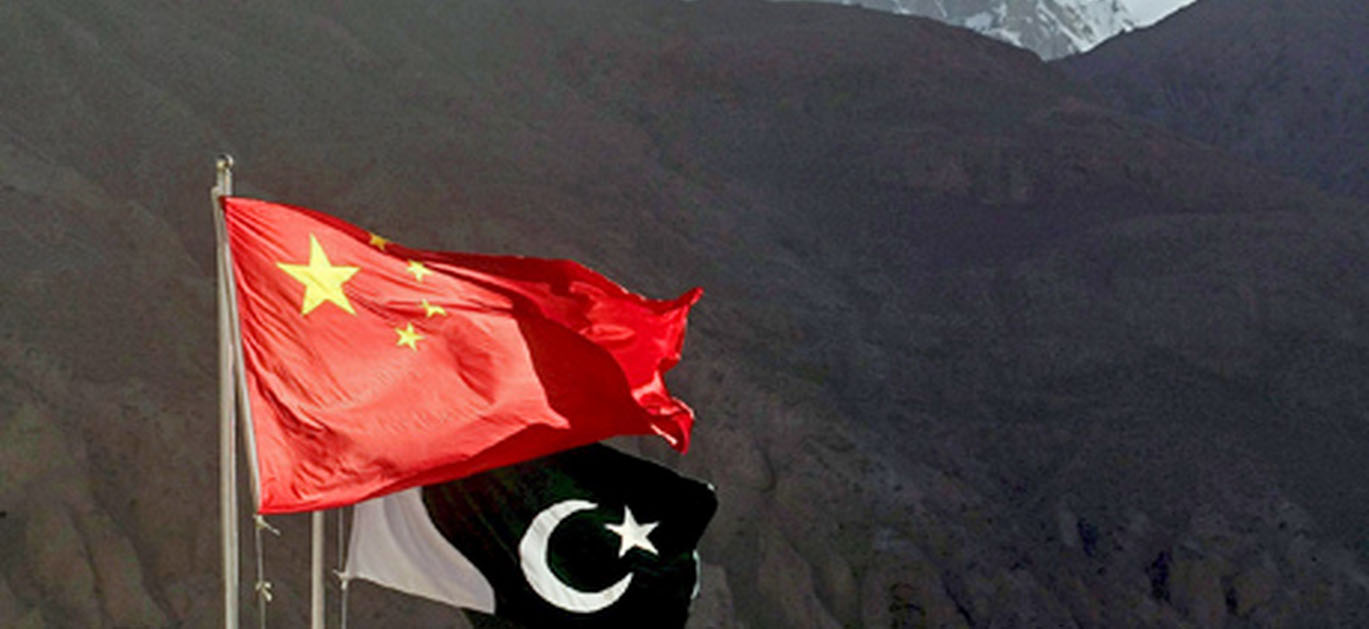Tucked away in Chapter 1 of Book 6, boringly titled ‘Defense’ in Clausewitz’s ‘On War’, is yet another nugget of his strategic wisdom: ‘In daily life, and especially in litigation (which so closely resembles war) it is summed up by the Latin proverb beati sunt possidentes (blessed are those in possession). Another benefit, one that arises solely from the nature of war, derives from the advantage of position, which tends to favour the defense.’1 Clausewitz was being wise, but not quite prescient. Statecraft has always recognised how intimately related are war and peace. The China of our own times is amply demonstrating its skills at statecraft. While the Indian strategic community and the media have looked at the South China Sea (SCS) closely, the real global and naturally, Indian concerns ought to focus on the larger picture of China steadily wanting to become more blessed in its possessions all around us and indeed in many other parts of the world. Latin or Sanskrit merely dignify the old dictum “possession is nine-tenths of the law” or the more colourful Hindi idiom, “jiski laathi, uski bhains” (Hindi expression literally meaning the guy with the stick lays claim on the buffalo!).
“Akhand” China?
China has never really let go of any significant territorial claims, some originating in ancient as well as medieval times. It has lived with “humiliation”. It has bided its time, recognised limitations as existed then and accommodated others’ demands in several compromises. It has even provided considerable diplomatic gloss to many territorial ambitions. While most treaties are by nature unequal, the appropriation of the term “unequal treaties” in Chinese statecraft for nearly a century now has permeated their domestic mind-space as well as its diplomacy. The wide usage of this term, is from a time when China hardly mattered in the power-driven world of international diplomacy. Yet, it was an important fuel, if not the oxygen, for a sense of victimhood as well as the national purpose. All this helped successive regimes craft a strategic vision. What is important, and enviable, is the unwavering determination for an “Akhand” China that has cut across regimes and across leadership changes. An expanded “Middle Kingdom”, territorially larger than today’s China, and world influence that might exceed that of the British empire at its apogee or of American power in the 1990’s remain the clear head-marks towards which the Chinese ship of state sails on. During this voyage, some claims have periodically been relegated to a back-burner, but practically nothing ever went off the cooking stove of national interest. In this context, it should hardly come as a surprise if, a few years or a few decades from now China brings the “inequities” of the 1858 Treaty of Aigun, and harks back to the territories referred to in the 1689 Treaty of Nerchinsk to force some territorial concessions from Russia.
Persistence, Patience & Disdain
Having well understood the principle of beati sunt possidentes, the dusting out of old maps, of old documents and of ancient rights in the SCS should also not have come as a surprise. History has been creatively presented, even invented, to give the domestic drive that great power dreams have to ultimately be fuelled by. Through all the complications of the colonial era, counter-claims, backing-off etc, it never let up on its claims to the islands, or resources or as a purveyor of rights to navigation. The steady, stealthy and ultimately military methods in which they occupied the Paracel (Xisha) and some of the Spratly (Nansha) islands during the waning moments of the Vietnam War was a reiteration of their belief in the wisdom of possession being nine-tenths of the law.
In this context, their disdain for the “one-tenth” of the law, if one may put it that way, of the July 2016 ruling of the Permanent Court of Arbitration (PCA) also should not have come as a surprise. In fact, it was the sense of vindication, even euphoria or the “game-changing” nature of the ruling among many analysts that seemed to be surprising.2 Dai Bingguo, the still very influential ex- diplomat, ought to have been taken more seriously when he said in Washington a week before the SCS ruling, “The final award of the arbitration, which will come out in the next few days, amounts to nothing more than a piece of paper.” In an open threat not only to Philippines, but to all, he added for good measure, “China would not sit idle.”3
The expansion of existing possessions, the creation of artificial islands of considerable complexity and the constant chipping away at others’ claims, all serve to claim the “buffalo”. Of course, the Chinese “stick” becomes deadlier, and they generally do not lay much store in speaking softly either.
Himalayan Plunder!
Closer home, and even more serious, is the physical occupation of Indian territories in the Himalayas; the continuing claims on Arunachal Pradesh; the de facto sovereignty that Pakistan granted China of Indian territory in the Karakoram. We rightly think of it as perfidy, but Pakistan quite intelligently gave possession of that critical area so presciently in 1963 to reap blessings in different ways. Less tangibly, China has never really deviated from its undermining and denigration of the Dalai Lama or of the social and cultural transformation of a much weakened Tibet. The current protests against the Dalai Lama’s visit to Arunachal, or to informal indications for renewed talk (and with obvious disadvantage to India) of territorial swaps are but only the latest manifestations of the strategic consistency and tactical alacrity of Chinese statecraft. Its explicit and tacit support to several separatist groups in India gets reiterated once in a while via opinions and activities of people such Paresh Barua of the outlawed United Liberation Front of Asom (ULFA)-(I) within China.
It is in this light that we need to be seriously watchful of utterances by people such as Dai Bingguo on Tawang and about the Dalai Lama. At the very least, robust countermeasures and preparedness are required. For too long in our legislative, political and diplomatic processes we have been far too “responsible.” We speak far too softly and shy away from carrying the big stick. Change can be discerned now but the tempo needs to pick up and the usual recourse to refrains about our lost territories being an integral part of India be drastically reframed. The litany of emphasising the “one-tenth” has little meaning in the face of the possession of the “nine-tenths” by our neighbours. Also, far more than the value of symbolism of the presence of HH the Dalai Lama, as a guest of India since 1959, is the substance of Tibetan issues and the leverages to be created during a post- Dalai era.
Will the “Flagship” of OBOR Founder?
It is also in the context of “possessions” that the One Belt One Road (OBOR) could be examined. Let us look specifically at the segments of China’s OBOR that masquerade as the China Pakistan Economic Corridor (CPEC), which was called the “Flagship of the OBOR” more than two years ago.4 After the 1963 handover of the Karakoram section, it was developed as internal territory by China along with the Tibetan region much before any articulation of “silk roads”. China’s plans for Gwadar, tapping of resources in Afghanistan, bonhomie with Iran, all predate their articulation of the grand-strategic vision of the OBOR. However, hindsight demonstrates that all this perhaps was born of strategic incubation. Given the physical, political and financial risks of such grand ambition, it now becomes clearer how Beijing set about mitigating its risks in its quest for new possessions of ports, roads, resources, markets and influence.5 This they have done through wide financial inroads creating deep, albeit messy, obligations. For example, internal fiscal management of Pakistan and perhaps of Sri Lanka may increasingly need to be aligned with Beijing’s diktats. This will be done with sophistication, of course, via a few of the new instruments financially muscular instruments like the Asian Infrastructure Investment Bank (AIIB).
However, well aware of the risks of political upheavals, and a falling out of favour, Chinese risk-mitigation is further being addressed by military muscle as well. In the uncertain political-physical environment of Baluchistan, and lately, that of Gilgit-Baltistan (GB), Chinese boots on ground already seem to be needed. Their ramping up of expeditionary capabilities, potential for military and naval facilities, ever closer military and nuclear cooperation with Pakistan are all illustrations of their forward thinking. In many ways, it replicates risk-management that colonial powers resorted to for reaping the fruits of their own “silk roads”.
There is a further example of the synergistic benefit of Pakistan also thinking in terms of “beati sunt possidentes”. The changed status for GB is one example. Rights granted to Chinese companies and agencies in Gwadar is another. The renewed noise about wanting to “possess” more flow from the Indus Waters is yet another. They can also afford to be indifferent to a completely irrelevant resolution in some now far away Parliament. (This Early Day Motion No 1107 was signed by only one member!) 6 Having inexorably hitched their own grand strategy to that of China, mutual risk-mitigation will require greater Pak compromises in the coming years. Interestingly, territorial sovereignty in the Pak political context has perhaps always been quite negotiable. Whatever be the ultimate consequences, they have allowed foreign terror groups to operate within. They have had foreign troops based within their provinces for operations as well as transit. They have had foreign ordnance being dropped on their soil despite some level of unhappiness and internal political complications. Finally, they have indeed lived with losing almost half their nation in 1971. Stationing Chinese troops/ para-military forces for safe-guarding Chinese investments would not be a very big step for Islamabad. In fact, it would seem that Pakistan may also reap the blessings of the Chinese possessing this level of control within Pakistan. That Pakistan is riding a tiger should be good for India, but this may not be enough for the “flagship” of CPEC to founder. This would require great imagination and pro-activeness from us.
Beijing’s Risk-Mitigation
China, of course, has been astute even if there is a possibility of suffering some consequences of being too clever. With the overall negotiating leverage that China acquires across several countries, political uncertainties sometimes have a way of evening out. Sri Lanka is a case in point. The present government owes some part of its electoral victory on the issue of Chinese investments and the attendant corruption. It now woos Chinese money-influx while going deeper into a debt trap. Ironically, the erstwhile regime, that provided China the geo-eco-political space, now looks for electoral leverage in protesting against at least some aspects of the many Chinese inroads into Sri Lanka. The net graph, from China’s perspective, is rather good: opportunities remain while risks tend to dissipate across regimes. Beijing’s handling of the current regime in Philippines or the influence they seem to have even in an Aung San set up in Myanmar are demonstrations of the dexterity of its statecraft.
Moving From One-Tenth Towards the Nine-Tenth?
What about India and possession being nine-tenths of the law? If we have to move beyond the decades-old refrain of “integral part of India...” etc, with reference to Pakistan Occupied Kashmir (POK) and Aksai Chin, increased robustness in grand-strategic planning is required. We have made some good tactical moves in recent months and hopefully they shall be consistent and aligned to an internal strategic vision. Somehow, every single policy-making individual and every single executor of that policy via astute strategic planning has to internalise the thought that diplomacy, military power, economic muscle are means of statecraft, not ends. Staying out of OBOR and CPEC is advisable and necessary and Sushant Sareen has articulated this rationale very well. 7
“Responsible State”: An Epithet that Needs to be Set Aside
Getting back to harnessing our blessings, it is ironical that as an upper riparian state, we have celebrated the essentially meaningless and perhaps insidious compliment from others of being a “responsible” state. We possess the water; Pakistan reaps more of the blessings. China thinks differently as an up-river nation and we seem not even angry enough about their “irresponsibility”. Our steady politico-diplomatic campaigning for our territorial rights can work in similar ways to China’s pitch in the South and East China seas. In a more general sense, it is quite astounding that among sections of the “commentariat” within India, the term “responsible state” is largely about earning praise from other countries. This applies to the “wisdom” of restraint in the face of serious provocations or any move towards strengthening nuclear deterrence postures through rethinking our doctrine including No first Use (NFU). It is only in the recent past that there is concrete realisation that the primary “responsibility” of the state is to implement a grand strategic vision and greater comprehensive national power for its citizens, and not for diplomatic brownie-points.
Several years have been frittered away in false hopes of China’s support for membership of the UN Security Council or of the Nuclear Supplier Group (NSG). In the bargain, we have ended up wanting to be nice to almost everyone but with only marginal gains to show for it. In statecraft, weakness, accommodation and amiability do not work well. Rarely does a nation get invited to the captain’s table; a seat there has to be grabbed.
Finally, despite whatever robustness may now be put into the “one-tenth” there is only so much that can be achieved towards regaining the other nine points. China and Pakistan sit on the nine-tenths as a result of their upper-hand gained through war. Unless we increase the risks to their ability to protect their possessions, there is limited prospect of regaining lost territories. Perhaps we need to think intensely how to make beati sunt possidentes one of our guiding principles to becoming a great power.
Endnotes
1 Clausewitz, Carl von, On War, Ed and translated by Michael Howard and Peter Paret, Princeton (1984). p 358. Clausewitz not being prescient is merely to emphasise that possession was necessary in trying to obtain geopolitical advantage. The phrase itself perhaps first appeared in the writings of the ancient Greek playwright, Euripides.
2 An example of this is Alexander L. Vuving’s article “Why the SCS Ruling is a Game Changer;” The Diplomat, 27 Jul 2016. The optimism was belied on several counts. Two of them are that neither has China been actually set back by the ruling, nor has Philippines become more insistent on a physical solution in its favour. If anything, it is a measure of Chinese statecraft that the Duterte regime has mellowed, not hardened its stand after the ruling! In fact, some of the other littoral contestants in the SCS seem to be more muted presently. All this merely illustrates how important the nine-tenths actually is.
3 Translation as available on rdcy-sf.ruc.edu.cn downloaded on 21 Feb 2017. The translation varies somewhat from what has been attributed to Dai Bingguo by Alexander Vuving in the previous note.
4 http://www.fmprc.gov.cn/mfa_eng/topics_665678/ytjhzzdrsrcldrfzshyjxghd/t1209089.shtml, downloaded on 05 Apr 17.
5 This writer’s understanding of the OBOR has been greatly helped by the diligent research specifically being undertaken by M.H. Rajesh, Indian Navy fellow at the USI, New Delhi and the broader understanding he has developed about China and Chinese history.
6 UK Parliament resolution https://www.parliament.uk/edm/2016-17/1107 downloaded 04 Apr 17. While Indian media and commentators made much of it, this was merely an Early Day Motion (1107) that was signed by only one member!
7 Sushant Sareen, News Laundry opinion piece of 03Apr17. https://www.newslaundry.com/2017/04/03/obor-and-chinas-attempts-at-bringing-india-under-its-yoke downloaded on 04 Apr 17.
Image Source: http://pakchinanews.pk











Post new comment